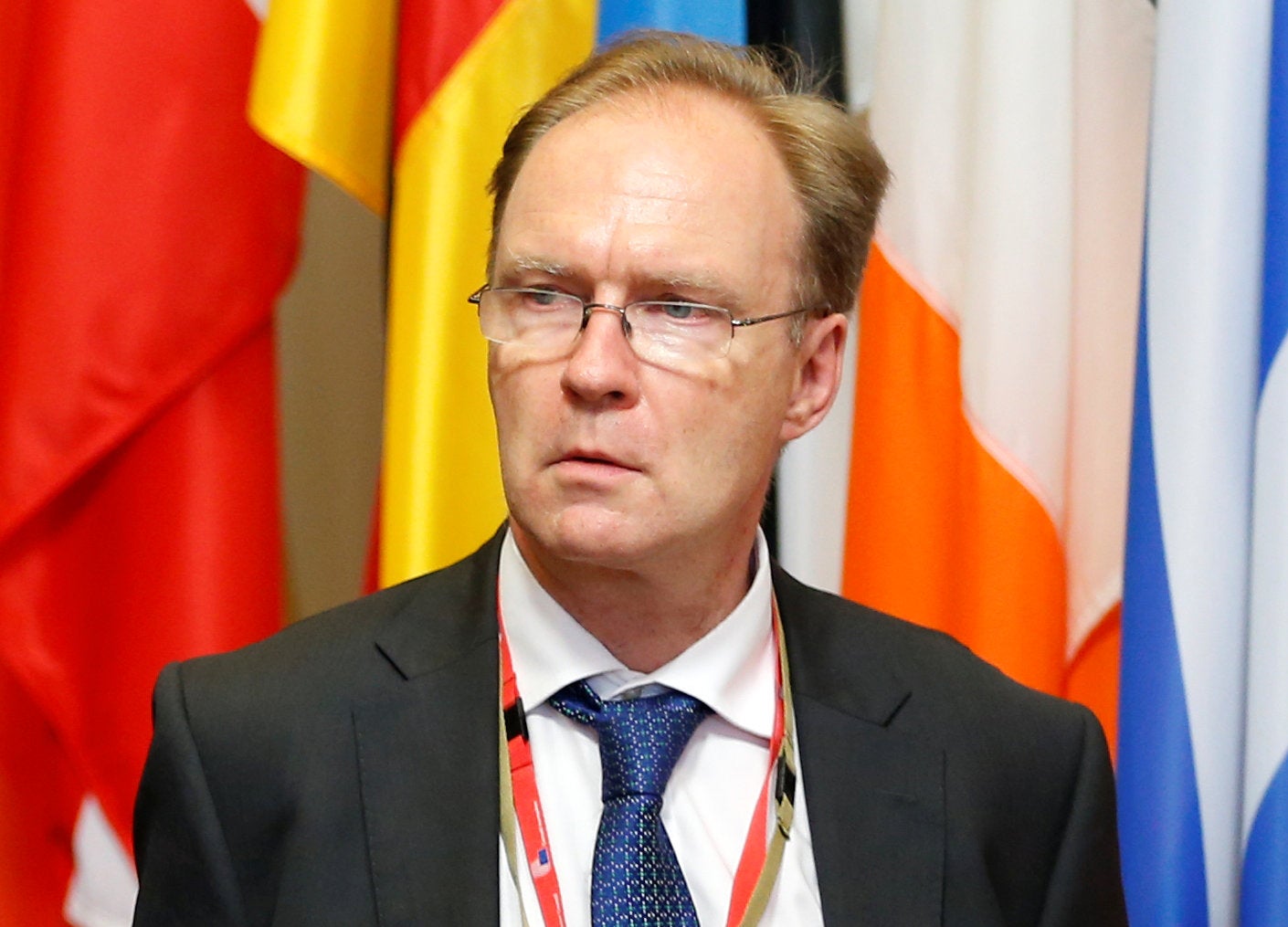I've met Ivan Rogers – he was marginalised by the Government for doing a proper job on Brexit
Hardline Brexiteers claim, without any proof, that he leaked his own advice to May that negotiating a trade deal with the EU could take 10 years. I doubt very much that he did; it’s more likely that it was leaked to undermine his position


“Don’t try to tell me what you think I want to hear,” Theresa May told civil servants. “I want your advice, I want the options. Then politicians make the decisions.”
The Prime Minister’s message, relayed in an interview with The Spectator in December, made perfect sense. As Home Secretary, her style was to weigh the evidence and then make her mind up. She did the same on entering Downing Street, postponing a decision on the Chinese-backed proposed nuclear plant at Hinkley Point, and then giving the go-ahead.
Yet different rules seem to apply to the biggest challenge facing the Government. On Brexit, May shows every sign of listening only to what she wants to hear. It is the most plausible explanation for the abrupt and damaging resignation of Sir Ivan Rogers as Britain’s ambassador to the EU, just weeks before formal exit negotiations begin.
I have met Rogers; it seemed to me that he rightly sees the civil service’s role as ensuring “how” the Government achieves its goals, not “what” the goals should be – a decision for politicians. He certainly believes in the plain speaking May claims to want. The problem with Brexit is that it is incredibly complicated. There is no simple A to B answer to the “how” question. It appears that Rogers was marginalised by Downing Street for spelling out some of the difficulties ahead and where the 27 EU countries stand – doing his job, in other words. Hardline Brexiteers are delighted to see the back of him. They claim, without any proof, that he leaked his own advice to May that negotiating a trade deal with the EU could take 10 years. I doubt very much that he did; it’s more likely that it was leaked to undermine his position.
May should resist the temptation to join the hardliners in suspecting the Whitehall machine of trying to block Brexit. Although the Brexiteers have won, many are paranoid that their enemies plot to snatch victory from them. This culture breeds a poisonous atmosphere in which some civil servants fear their motives are doubted and so dilute their advice to avoid being branded not “one of us”, as Margaret Thatcher dubbed her critics. “There is a lot of self-censorship on Brexit going on,” said one Whitehall insider.
Rogers imposed no such constraints on himself; that was not his style. His resignation may prove the tip of an iceberg. The word in Whitehall is that some other officials will do their duty until Article 50 of the Lisbon Treaty is triggered to kickstart the exit talks, and then seek a transfer or pastures new outside the civil service. The hardliners would say “good riddance” and welcome the appointment of officials who “believe in Brexit”. But this would mean a worrying politicisation of our neutral civil service. The system works when officials give unvarnished, independent advice, and then make the decisions of their political masters work, as the overwhelming majority do.
The barbs directed at civil servants by the Brexiteers are all of a piece with Michael Gove’s ludicrous statement during the referendum that people have “had enough of experts”. He now admits it was “manifestly nonsense” to claim that expert engineers, doctors and physicists were wrong, but insists “a sub-class of experts, particularly economists, pollsters, social scientists” should reflect on their mistakes.
Gove’s original remark sums up the hubris of the Brexiteers, who seem prepared to cut off their nose to spite their face if it means listening to any “expert” with pro-EU instincts. They are in denial about there being two sides in any negotiation. It is also obvious that you need to know what those on the other side of the table want, the influences upon them and any divisions amongst them. Rogers was the best-placed person to know; talking about this does mean “selling out,” as the Brexiteers suggest.
To prosper, the UK needs to exploit the “many opportunities” that Brexit will bring, but also win the best possible deal with the EU, especially on trade. That is precisely what Rogers argued in his resignation letter to his UK staff in Brussels, which showed his frustration at them being sidelined.
Rogers confirmed that he does not know the Government’s negotiating objectives. This is not a case of being out of the loop; May is yet to decide them. She now needs to do so quickly. The task would be eased by forgetting Gove’s mantra and not suspecting the motives of those offering candid advice.
May will need all the expertise she can muster to find a way out of the Brexit maze.

Join our commenting forum
Join thought-provoking conversations, follow other Independent readers and see their replies
Comments